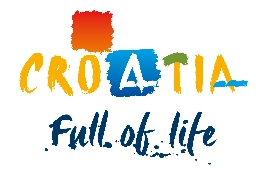





The Church of St. Roch in Brtonigla
The Church of St. Roch, the patron saint of Brtonigla, was built on the location of the former 14th century Church of St. John the Baptist. This church was “moved” after the old Church of St. Roch, which was located elsewhere, became unusable after a plague outbreak in 1855, and was relocated to the Church of St. John the Baptist.
Today, the Church of St. Roch features a wooden altar with statues of the Blessed Virgin Mary, St. Roch, St. Sebastian, St. Peter, St. Paul and St. John the Baptist, to whom the church was once dedicated. The church is rectangular with a semi-circular apse.
Saint Roch, protector against plague and cholera
According to some written sources, St. Roch was born in 1295 in the French town of Montpellier with a mole in the shape of a cross on his chest. He belonged to a noble family, however he lost both his parents at a young age. After the death of his parents, he sold all his belongings and distributed them to the poor, and then went to Rome as a pilgrim. On his numerous journeys and pilgrimages, he did good deeds and helped victims of the plague, of which he also eventually died.
St. Roch is venerated in many churches and cities in Croatia today, and believers call upon him most often when they need protection from infectious diseases.
The Feast Day of St. Roch, one of Istria’s most fun celebrations
The tradition of celebrating St. Roch in Brtonigla on 16 August gave birth to one of the most popular folk celebrations in Istria – the Feast Day of St. Roch. This three-day event includes diverse sports, entertainment, music and gourmet programmes, and draws numerous visitors from Croatia and abroad. On the Feast Day of St. Roch, a traditional holy mass is held, and there is a procession from the Church of St. Roch to the parish church in Brtonigla.


Destinations
Additional Information


©2026 Colours of Istria. All rights reserved. No part of this site may be reproduced without our written permission.
























